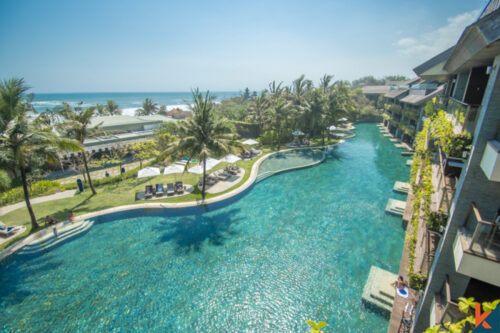Southeast Asia, a region celebrated for its stunning landscapes and rich cultural tapestry, has emerged as a prime destination for property investors and homebuyers from around the globe. Among its most prominent locales are Bali, Thailand, and Vietnam, each offering distinct opportunities and challenges in their respective property markets. This comprehensive comparison aims to shed light on these differences, accentuating Bali’s unique position in the real estate sector.
The allure of Southeast Asia’s property market lies in its diversity, catering to a broad spectrum of preferences, from serene beachfront homes to bustling city apartments. We delve into the specifics of Bali, Thailand, and Vietnam, examining factors like investment potential, lifestyle appeal, and legal constraints, thus providing a holistic view for potential investors and residents.
Bali’s Real Estate Market
Bali, Indonesia’s famed ‘Island of the Gods,’ is a real estate haven known for its luxurious villas, picturesque beachfront properties, and culturally rich ambiance. The Bali property market appeals to a diverse group of buyers, ranging from investors seeking high rental yields to lifestyle purchasers looking for a serene retreat.
One of Bali’s key strengths lies in its cultural charm. The island’s unique Hindu traditions are intricately woven into the fabric of daily life, reflecting in its architectural styles and community living. This cultural richness offers an unparalleled living experience. However, Bali’s market is not without its challenges. Foreign investors face legal restrictions in property ownership, often navigating through complex leasehold agreements. Additionally, the island’s real estate market is susceptible to global economic shifts and the ebb and flow of its tourism industry, leading to potential market volatility.

Thailand’s Real Estate Market
Thailand’s real estate market, particularly in Bangkok, Phuket, and Pattaya, is distinguished by its lively urban atmosphere and idyllic beaches. Known for its openness to foreign investment, Thailand offers a broad spectrum of property choices, from modern condominiums in bustling cities to tranquil beachside residences.
Thailand’s property market is especially attractive to foreign investors, thanks to its relatively straightforward ownership processes for properties like condominiums. The country’s vibrant expat communities in cities such as Bangkok and Chiang Mai enhance its appeal, creating a welcoming environment for international buyers. Despite these strengths, Thailand’s real estate sector faces its own set of challenges. The nation’s political landscape can sometimes be volatile, affecting market confidence. Additionally, urban areas, particularly Bangkok, grapple with issues like congestion and pollution, which can impact the quality of life.
Vietnam’s Real Estate Market
Vietnam, with its rapidly growing economy and urban development, has positioned cities like Ho Chi Minh City and Hanoi as emerging hotspots in the real estate market. The country’s property sector is marked by a blend of traditional charm and modern development, attracting a wide range of investors.
Vietnam’s strong economic performance in recent years has been a significant draw for property investors, instilling confidence in the market’s growth potential. The emerging markets in cities like Da Nang offer exciting opportunities for early investors to capitalize on. However, Vietnam’s real estate market is not without its hurdles. Foreign ownership is restricted, posing challenges for international investors. Furthermore, while the country’s infrastructure is developing rapidly, it still lags behind more established Southeast Asian neighbors in certain areas, impacting the overall investment appeal.
Conclusion
In summary, each of these Southeast Asian destinations offers unique opportunities and challenges in the property market. Bali’s appeal lies in its cultural richness and potential for high rental yields. Thailand offers a foreign investment-friendly environment and a high quality of life, while Vietnam stands out for its economic growth and emerging market potential. For investors and homebuyers, understanding the intricacies of each market is crucial in making informed decisions in these diverse and dynamic real estate landscapes.
